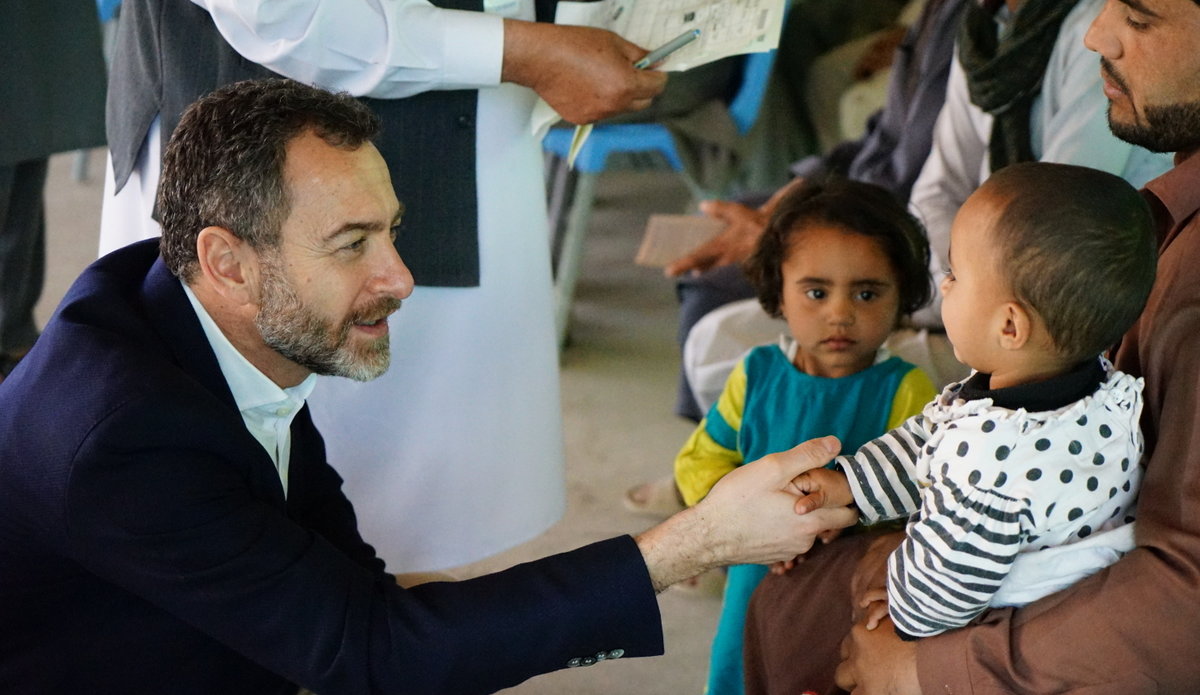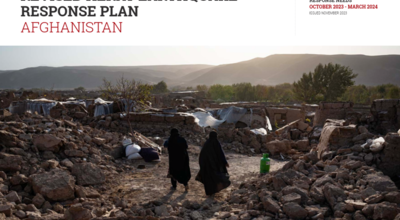Top UN Humanitarian Official in Afghanistan Meets with Returnees in Jalalabad
JALALABAD - The top United Nations official for humanitarian affairs in Afghanistan, Toby Lanzer, visited the country’s eastern province of Nangarhar this week to meet first-hand with Afghans returning from Pakistan and with UN agencies working in Jalalabad to provide them assistance.
The UN in Nangarhar continues to provide direct aid to returnees coming from Pakistan in the form of medical care and food, along with logistics and financial support in helping the returnees settle and reintegrate productively into Afghan society. In 2016, some 620,000 returned to Afghanistan following a deterioration in the protection environment in Pakistan.
Mr Lanzer was accompanied by members of the UN regional team to assess support to the returnee population, and to evaluate the UN’s systems in place to address the eastern region’s other population movements, including those of internally displaced persons.
“The United Nations will do everything in its power to support you and to support the government programmes set up to provide you assistance in coming back to Afghanistan,” Mr Lanzer told a group of returnees receiving assistance from UN agencies at a facility on the outskirts of Jalalabad.
“I hope that we can all work toward a situation where a peaceful life in Afghanistan is possible, securing for everybody a better long-term future,” said the humanitarian chief, who is also the Secretary-General’s Deputy Special Representative for Afghanistan.
In a meeting with Mr Lanzer during his two-day visit to the province, Provincial Governor Mohammad Gulab Mangal told the UN official that the growing number of displaced people is putting pressure on Nangarhar’s residents and the provincial government, and said he hopes the UN will continue to support refugees and returnees.
In addition to meeting with government officials and returnees, Mr Lanzer also met with civil society groups, women’s rights activists, community elders and the directors of the province’s main orphanage. In each meeting, he listened to the Afghans’ concerns about the current situation in Nangarhar and underlined the UN’s commitment to do everything in its power to assist those in need, in the interest of achieving security, stability and prosperity for the people of Afghanistan.
While more than 620,000 Afghans returned from Pakistan in 2016, the United Nations estimates that similar numbers of people may return in 2017, exacerbating humanitarian challenges in the eastern and south-eastern regions of the country.
In 2016, according to the UN Office for the Coordination of Humanitarian Affairs (OCHA), the humanitarian community provided life-saving, emergency humanitarian assistance to more than 3.6 million Afghans in 2016.
Donors provided more than US$538 million toward humanitarian programmes in Afghanistan, with most humanitarian assistance being through the provision of life-saving medical care and emergency medical supplies, in addition to emergency supplies of food, water and shelter.
This year, OCHA estimates that 9.3 million Afghans will need humanitarian assistance, of which 5.6 million of the most vulnerable are targeted for help under the 2017 Afghanistan Humanitarian Response Plan.
 UN
UN








